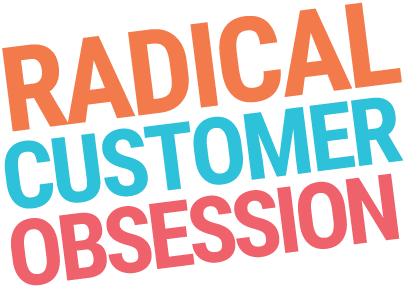
Grocery shopping aside, if you think back to the last 10 items you purchased, you will probably have mixed feelings. Some items you will recall with a sense of pure satisfaction, some you will struggle to remember and some will just fill you with dread and regret.
Most of us have a section of our wardrobe dedicated to unworn impulse purchases, a kitchen of unused gadgets and a bathroom drawer with make up and cosmetics that we convince ourselves we will use one day.
So why do we buy? What complex (or simple) thought processes do humans go through when it comes to purchasing? And why do we go on to deeply regret some of those purchases?
The majority of the time, consumer behaviour is driven by the unconscious mind. Shoppers are often under the influence of basic evolutionary drivers and the modern act of buying something is often filling an array of emotional, rational and primal needs. This is particularly true of impulse purchases, where spending decisions cannot be attributed to any premeditated planning or needs analysis.
It would seem that our mood, memories, fears and even our personality can be used to predict what we might pick up on a whim; and how much.
Typical reasons for impulse buying
The science suggests that impulse purchases may be motivated by a number of different factors and as beauty retailers, it’s important to understand these drivers.
1) Emotional Enjoyment:
We tend to pick up things that make us happy. The thought of immediate, pure pleasure can be insanely powerful; particularly when we are under stress or feeling anxious. Getting something new or getting a treat is a pick-me-up on a bad day, adds spice to a boring one, and can work as a strong incentive for a lazy day. Which would explain why the cosmetics counter is the perfect impulse purchasing environment – pretty things, the perfect shade of red lipstick and products that tantalise the senses.
Typically, people impulse buy things that make them feel good, or things that have an emotional value. Scientists tell us that this happens because such items help us feel better about ourselves and temporarily dampen our unhappy thoughts and self-doubt.
Studies have also found that the worse a person’s mood when they enter (or pass by) a shop, the more they are likely to make impulsive purchases.
A distracted buyer is also an impulse buyer! When our mental resources are occupied elsewhere, we tend to buy things that seem appealing. Researchers think this happens because we have a limited amount of mental space.
So when we are trying to manage various situations that demand our attention (like buying groceries while carrying a tired baby, talking to a friend, or taking a work call); we have very little mental space left to make a considered purchase decision. Usually, such moments lead us to buying things that seem interesting; and often ones that are not on the list.
2) Loss aversion
There’s a reason that the cosmetics industry has built core promotions for decades on GWP (Gift with Purchase) offers. Whether it’s a limited edition cosmetics bag or bonus lipstick, consumers are drawn to things when they’re not sure that it will always be available; or if they think that they are getting a really good deal.
The idea that we are getting more for the same amount of money spent speaks to most of us; even when we aren’t trying to save money.
3) Bargain Spotting
Ever seen a 20% off (or even 5%) off sign on something and suddenly felt that you just have to get it? This happens because our brain can often get fooled by the idea that something MAY be a good deal. And who doesn’t want a good deal? Often consumers will justify an impulse purchase based on what they’ve saved, rather than the purchase price.
4) The need to stockpile
As a species that fears running out of resources, we have a tendency to stock up on things we think we should have. This is driven by a primal instinct of scarcity and the key unconscious motivator for many purchases during a sales frenzy. Ever witnessed a die-hard devotee of a particular make-up brand discover her favourite lipstick shade is being discontinued?
5) Rose Coloured Glasses
Humans are by nature very optimistic. For better and worse, we routinely delude ourselves. We believe we’re better than average looking, better than average drivers, better than average parents… clearly, we can’t all be right.
Objectivity is an elusive virtue. Rather than look back and reflect on our past actions with anything approaching a balanced scorecard, we look to the future with an idealised view of what it might be like.
We are convinced that we will eat all the food we buy, wear every item of clothing, and use all make up that we buy. It doesn’t really matter if we are told that this may not happen; we still go ahead and buy – optimistically.
Better understanding these drivers will help you spot an impulse shopper (and their motivations) and hopefully guide them into a purchase that they will feel good about long term, not just for a fleeting moment.



